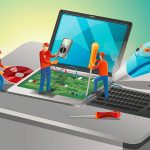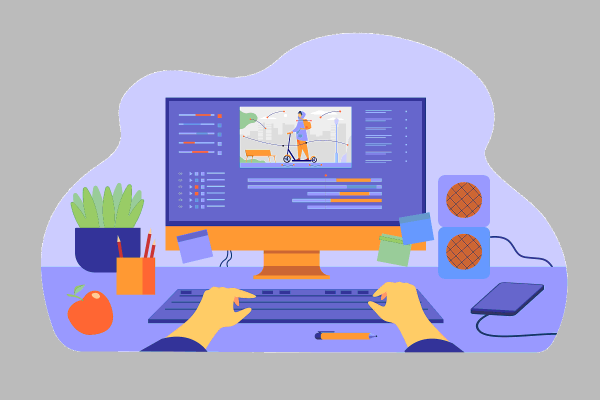Computers have evolved from being specialized machines to indispensable tools that permeate every facet of our daily lives. Their integration into our routines has transformed the way we work, communicate, learn, and entertain ourselves.
1. Work and Productivity
In the workplace, computers are the backbone of productivity. From drafting documents and creating presentations to managing complex databases and conducting video conferences, they streamline tasks and facilitate collaboration. Various industries rely on specialized software and computing power for design, analysis, and innovation.
2. Communication and Connectivity
Computers serve as gateways to the world, enabling instant communication and global connectivity. Emails, social media platforms, and messaging apps keep us in touch with friends, family, and colleagues across continents. Video calls and conferences bring people closer, transcending geographical boundaries.
3. Education and Learning
Computers have revolutionized education, offering a vast repository of knowledge accessible to learners of all ages. Online courses, digital libraries, and interactive learning platforms provide a wealth of resources, enhancing the learning experience. Educational software and simulations aid in understanding complex concepts in various fields.
4. Entertainment and Leisure
Entertainment has been radically transformed by computers. Streaming services, online gaming, and digital content creation platforms offer a plethora of choices for leisure activities. Music production, video editing, and digital art creation have become accessible hobbies, blurring the lines between consumers and creators.
5. Healthcare and Research
In the realm of healthcare, computers play a pivotal role in patient care, diagnostics, and research. Electronic health records streamline administrative tasks, while advanced imaging technologies and data analysis tools aid in diagnosis and treatment planning. Researchers leverage computing power for simulations, drug discovery, and genetic analysis, driving medical advancements.
6. Personal Assistance and Organization
Personal computers and smart devices act as personal assistants, helping us organize our lives. Calendar apps, task managers, and virtual assistants streamline scheduling and reminders, enhancing productivity and efficiency in managing daily tasks.
7. Accessibility and Inclusivity
Computers have opened doors for inclusivity by providing assistive technologies for individuals with disabilities. Screen readers, speech recognition software, and adaptive input devices empower people with diverse needs to access and use technology effectively.
Conclusion
Computers have seamlessly integrated into the fabric of everyday life, reshaping how we work, communicate, learn, and entertain ourselves. Their versatile roles across various domains highlight their transformative impact on society. As technology continues to evolve, the influence of computers on our lives will only grow, promising further innovations and advancements that will continue to redefine the way we live and interact with the world around us.







